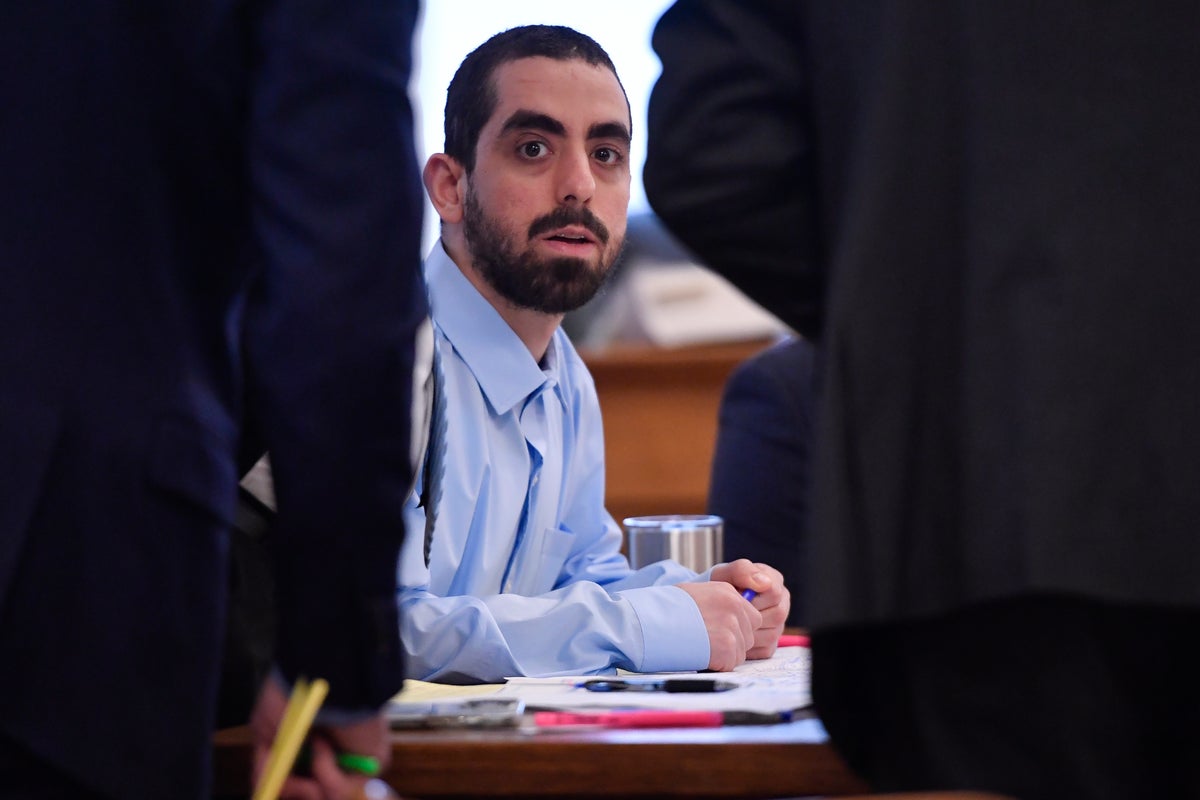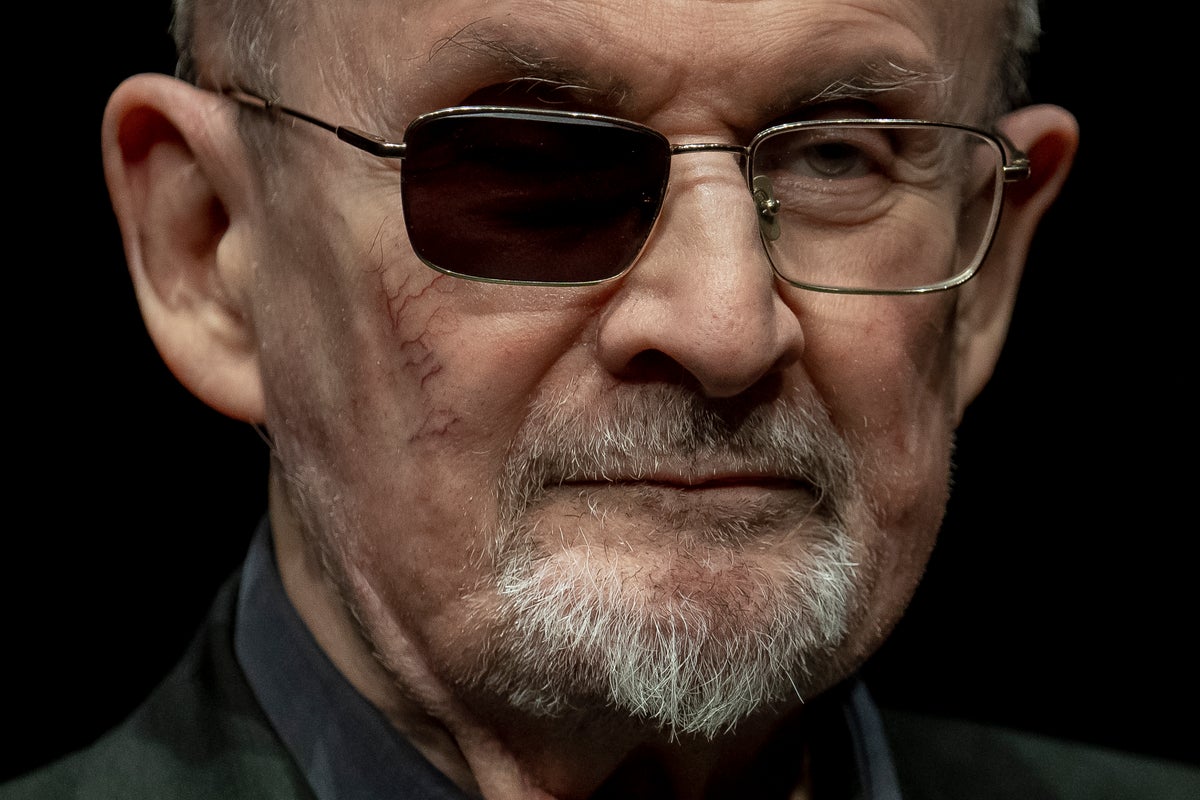The trial of the man charged with trying to fatally stab author Sir Salman Rushdie in front of a lecture audience in western New York is scheduled to begin today. The 77-year-old is expected to testify during the trial of Hadi Matar, bringing the writer face-to-face with his alleged attacker for the first time in more than two years. The author, who wrote “Midnight’s Children” and “Victory City,” had been about to speak about keeping writers safe from harm in August 2022 when Matar ran toward him on the stage at the Chautauqua Institution Amphitheater.
Matar is alleged to have stabbed Rushdie more than a dozen times in the neck, stomach, chest, hand and right eye, leaving him partially blind and with permanent damage to one hand. The Indian-born British author detailed the attack and his long, painful recovery in a memoir, “Knife: Meditations After and Attempted Murder,” released last year. Matar, 27, of Fairview, New Jersey, is charged with attempted murder and assault. He has pleaded not guilty. A jury was selected last week. Matar was in court throughout the three-day process, taking notes and consulting with his attorneys. Once testimony is underway, the trial is expected to last a week to 10 days. Jurors will be shown video and photos from the day of the attack, which ended when onlookers rushed Matar and held him until police arrived. The event’s moderator, Henry Reese, co-founder of City of Asylum in Pittsburgh, was also wounded.
Matar told investigators he travelled by bus to Chautauqua, about 75 miles south of Buffalo. He is believed to have slept in the grounds of the arts and academic retreat the night before the attack. His defence attorney has not indicated what his defence will be. In a separate indictment, federal authorities allege Matar was motivated by a terrorist organization’s endorsement of a fatwa, or edict, calling for Rushdie’s death. A later trial on the federal charges — terrorism transcending national boundaries, providing material support to terrorists and attempting to provide material support to a terrorist organization — will be scheduled in U.S. District Court in Buffalo.
Rushdie spent years in hiding after the late Iranian leader Ayatollah Ruhollah Khomeini issued a fatwa in 1989 over his novel, “The Satanic Verses,” which some Muslims consider blasphemous. In the federal indictment, authorities allege Matar believed the edict was backed by the Lebanon-based militant group Hezbollah and endorsed in a 2006 speech by the group’s then-leader, Hassan Nasrallah. Get email updates with the day's biggest stories.






















